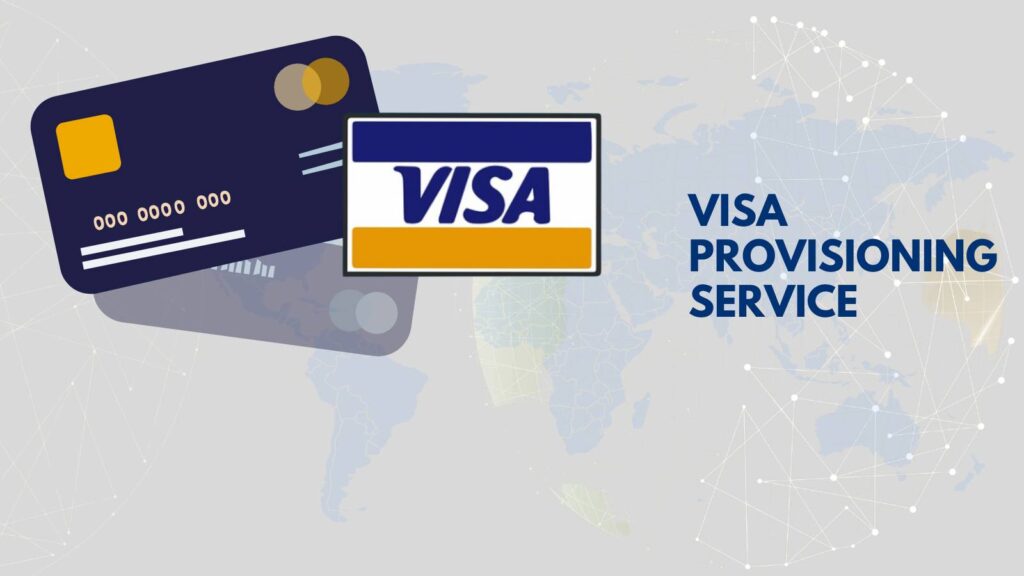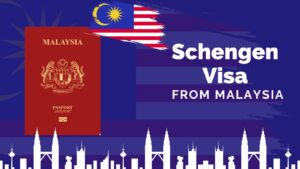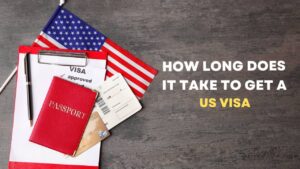The Visa Provisioning Service is a secure digital process that allows Visa cardholders to connect their cards to mobile wallets, e-commerce platforms, and other digital payment systems without exposing their actual card numbers. This service uses advanced tokenization and encryption methods to replace sensitive card data with a unique payment token, thereby reducing the risk of fraud and unauthorized access to financial information.
For individuals who travel internationally or make cross-border transactions, Visa Provisioning Service provides a critical layer of protection and efficiency. It facilitates fast, secure, and globally recognized transactions, ensuring smooth payments for services such as travel bookings, retail purchases, and visa application fees. The service is widely supported by banks, payment platforms, and merchants, making it a practical solution for secure global transactions.
Introduction to Visa Provisioning Service
Visa Provisioning Service is part of Visa’s broader security framework, designed to meet the increasing demand for digital and contactless payment options. The system operates by provisioning a Visa account into a digital payment environment, allowing the cardholder to make payments using a mobile device, wearable device, or online account without physically presenting the card.
This service benefits two major user groups—international travelers and international applicants—by reducing transaction risks and ensuring uninterrupted access to payment networks. Travelers can make purchases in foreign markets without worrying about card theft or skimming, while applicants can securely pay for application fees even if they are located in a different country from the processing institution.
The service’s integration with mobile payment technologies makes it compatible with contactless point-of-sale terminals and online payment gateways globally.
What is Visa Provisioning Service?
Visa Provisioning Service is a secure, token-based payment technology that replaces the actual card number with a unique, encrypted identifier known as a token. This token is generated specifically for the cardholder’s account and is stored securely within the payment system. The token is used in place of the real card number during transactions, ensuring that sensitive payment information is not exposed to merchants or third-party processors.
Traditional payment methods where card numbers are transmitted and stored, tokenization ensures that each transaction has a unique security layer. This significantly reduces the potential for card fraud, even in cases where merchant databases are compromised. The service works with a variety of payment methods, including NFC-enabled contactless transactions, mobile wallet purchases, and online checkouts.
The security protocols involved in Visa Provisioning Service are designed to meet the payment industry’s highest compliance standards, including PCI DSS (Payment Card Industry Data Security Standard) requirements.
How Visa Provisioning Service Works
The Visa Provisioning Service is designed to protect sensitive payment data while enabling fast, convenient, and secure digital transactions. It follows a structured, multi-layered process, ensuring both the cardholder and merchant benefit from seamless payment experiences without compromising on safety.
1. Card Enrollment
The process begins when a cardholder adds their Visa card to a compatible digital wallet or payment system, such as Google Pay, Apple Pay, or Samsung Pay. This step involves verifying the card’s authenticity through the bank or issuing institution. The bank checks for validity, account status, available balance, and any potential fraud alerts before approving the enrollment.
In some cases, additional verification methods—such as one-time passwords (OTPs), phone confirmations, or email verifications—are used to ensure the request is legitimate. This initial security checkpoint prevents unauthorized cards from being provisioned.
2. Token Generation
Once the card is verified, Visa creates a unique “token,” which is a substitute for the actual card number (Primary Account Number, or PAN). This token is device-specific, meaning it can only be used on the registered phone, smartwatch, or payment account.
If someone tries to use this token elsewhere, it will not work. This system significantly limits the risk of card number theft because even if a hacker obtains the token, it is useless without the original device and associated authentication.
3. Secure Storage
After generation, the token is securely stored either in the device’s hardware-based security chip (Secure Element) or on the payment provider’s encrypted servers. This storage method ensures that the token is inaccessible to malware or unauthorized applications.
On top of that, advanced security layers such as Trusted Execution Environments (TEE) and Secure Enclave technology further shield the token from cyberattacks.
4. Authentication
Before every payment, Visa Provisioning Service requires the user to confirm their identity through authentication methods. These can include biometric security features like fingerprint scans, facial recognition, or retina scans, as well as secure PIN codes.
Multi-factor authentication is often employed to add another layer of protection, ensuring that even if someone steals the device, they cannot authorize payments without the correct credentials.
5. Transaction Processing
When the user initiates a transaction, the token—not the actual card number—is transmitted to the merchant. Visa’s secure systems match the token with the corresponding real card details stored in a protected database.
Once the match is confirmed, the transaction is authorized in real time. Since the actual card number is never exposed to merchants or their payment processors, the chance of data breaches is drastically reduced.
This process eliminates the need to share sensitive payment details, making it extremely difficult for cybercriminals to intercept or misuse information.
Benefits of Visa Provisioning Service for Travelers
Travelers face multiple challenges—currency conversion delays, the risk of carrying physical cards, and exposure to fraud in unfamiliar regions. Visa Provisioning Service addresses these with practical solutions.
Enhanced Security
When traveling, losing a physical card or having it skimmed at ATMs or point-of-sale terminals can lead to major inconveniences and financial risks. With Visa Provisioning Service, your real card data is never transmitted during transactions, and even if payment data is intercepted, it cannot be reused without the authorized device and authentication.
Global Acceptance
Visa is accepted at over 100 million merchant locations and ATMs worldwide. Tokenized payments via Visa Provisioning Service work seamlessly across these locations, so travelers do not have to worry about incompatibility. Whether paying for a hotel in Paris, a taxi in Singapore, or a meal in New York, the payment process remains consistent and secure.
Faster Transactions
Speed is essential when navigating airports, boarding trains, or attending events. Contactless payments enabled by tokenization are processed in seconds—significantly faster than inserting a chip card or swiping a magnetic stripe. This not only saves time but also reduces queues in busy tourist locations.
Currency Support
The service handles multiple currencies and performs automatic currency conversions at the point of sale, using competitive exchange rates. This removes the hassle of pre-converting large amounts of foreign currency or carrying multiple cards for different regions.
Protection in High-Risk Areas
In countries or cities known for credit card fraud, using Visa Provisioning Service adds a crucial safety barrier. Even if payment systems are compromised, the attacker cannot access the real card details—making it one of the safest payment methods abroad.
Benefits for International Applicants
International applicants—whether paying university tuition, visa fees, or application charges—often need secure, reliable payment options across borders.
Secure Cross-Border Payments
When making payments across different banking networks and currencies, the risk of data interception is higher. Tokenization ensures that your card details are never directly transmitted, safeguarding against potential fraud during international transactions.
Reliability in Payment Processing
Some banks block transactions if there’s a mismatch between the cardholder’s physical location and the merchant’s location. Token-based transactions often bypass these issues since they are routed through secure, pre-verified systems, reducing the risk of payment rejection.
Faster Transaction Approvals
Visa Provisioning Service enables instant or near-instant payment authorizations, which can speed up application approvals—particularly important for time-sensitive submissions like visa slots or academic deadlines.
Compatibility with Official Platforms
Many government portals, embassy payment systems, and university fee platforms support tokenized payments. This means applicants can complete official transactions securely without relying on outdated or less secure payment channels.
Minimized Fraud Risk with Third Parties
When working with third-party agents or service providers, tokenization ensures that your actual card details remain private, even if these intermediaries process the payment on your behalf.
Where and How to Use Visa Provisioning Service
Visa Provisioning Service can be integrated into multiple payment channels, offering flexibility to users.
- Mobile Wallets: Add your Visa card to Apple Pay, Google Pay, Samsung Pay, or similar platforms to enable contactless in-store and in-app transactions.
- Online Payments: Many e-commerce websites now support tokenized Visa transactions, offering safer checkout experiences.
- Point-of-Sale Terminals: In countries with NFC-enabled payment adoption, you can simply tap your phone or wearable to make a payment.
- Subscription Services: Use tokenized payments for recurring charges like streaming services, gym memberships, or software subscriptions, reducing the risk of unauthorized access to card data.
Before getting started, confirm that your bank and device support Visa Provisioning Service, and ensure your device meets security requirements for tokenized payments.
Common Issues & Troubleshooting Tips
Even though Visa Provisioning Service is highly reliable, users may face occasional issues.
- Provisioning Failures: This can happen if your bank doesn’t support tokenization or your card details are outdated. Updating your card and checking with your bank can resolve the problem.
- Device Migration Problems: Tokens cannot be transferred between devices. When you change your phone, you must re-add your card and complete verification steps.
- Merchant Acceptance Limitations: Some small businesses or developing market merchants may not accept tokenized payments. In such cases, carrying an alternative payment method is wise.
- Network or Connectivity Issues: While in-store contactless payments often work offline, online payments and initial provisioning require a stable internet connection.
Is Visa Provisioning Service Safe?
Visa Provisioning Service offers some of the strongest protections in modern payments:
- Tokenization: Ensures that your real card number is never transmitted or stored by merchants.
- Encryption Standards: All payment data is encrypted from your device to Visa’s servers, making interception virtually impossible.
- Authentication Protocols: Payments require biometric verification or secure PIN entry, preventing unauthorized use even if your device is stolen.
Given these measures—and its compliance with global payment regulations—Visa Provisioning Service is widely considered one of the safest payment methods available today.
FAQs
1. What is Visa Provisioning Service?
Visa Provisioning Service is a secure digital payment technology that uses tokenization to replace your actual Visa card number with a unique digital token. This token can be stored in mobile wallets, online accounts, or secure payment systems, enabling safe and fast transactions without exposing your real card details.
2. How does Visa Provisioning Service work?
When you add your Visa card to a supported payment platform (like Google Pay or Apple Pay), Visa generates a device-specific token linked to that card. This token is stored securely and used for payments instead of your actual card number. Each transaction is authenticated—often through biometrics or PIN—before being processed.
3. Is Visa Provisioning Service the same as Visa Token Service?
They are related but not exactly the same. The Visa Token Service is the broader system responsible for creating and managing tokens. Visa Provisioning Service is one of the ways this tokenization is deployed—specifically for setting up secure payments on compatible devices and platforms.
4. Is Visa Provisioning Service free?
Yes, Visa Provisioning Service is generally free for cardholders. Your bank or card issuer typically covers the cost of enabling tokenization and provisioning. However, standard transaction fees and currency conversion rates may still apply for purchases.
5. Which devices and platforms support Visa Provisioning Service?
Visa Provisioning Service works with most modern smartphones, smartwatches, and NFC-enabled devices. It’s compatible with mobile wallets such as Apple Pay, Google Pay, Samsung Pay, and many banking apps. Some wearable devices, like Fitbit Pay or Garmin Pay, also use provisioning technology.
6. Can I use Visa Provisioning Service abroad?
Yes, Visa Provisioning Service works internationally in regions where contactless and tokenized payments are accepted. Since Visa is supported in over 200 countries and territories, you can use it for travel, online purchases, and cross-border payments, provided the merchant supports contactless or tokenized transactions.
7. What happens if I lose my phone or device?
If your device is lost or stolen, your actual card number remains safe because only the token is stored on the device. You should immediately contact your bank or use your mobile wallet’s security feature to remotely lock or delete your payment credentials. A new token can be generated when you set up a replacement device.
8. Can I still use my physical Visa card after provisioning?
Yes. Visa Provisioning Service doesn’t replace your physical card—it’s an additional secure payment method. You can continue to use your physical card, online card details, and tokenized payments interchangeably, depending on the situation.
9. Why might Visa Provisioning Service fail to work?
Common reasons include:
- Your card issuer not supporting tokenization.
- Outdated card or account details.
- Poor internet connection during setup.
- The merchant not accepting contactless or tokenized payments.
Most issues can be resolved by updating your payment details, contacting your bank, or trying a different supported payment method.
10. Is Visa Provisioning Service safe to use?
Yes, it is one of the most secure payment technologies available. Tokenization ensures that your real card number is never shared with merchants, encryption protects data during transmission, and multi-factor authentication prevents unauthorized transactions—even if your device is compromised.






